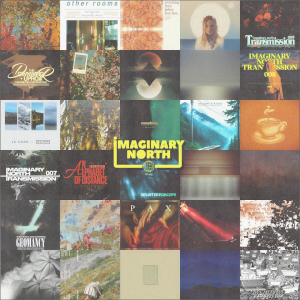
Organ lines cross and spin in a complex dance, then suddenly, a massive, herky-jerky beat kicks in, along with a what is that, guitar, bass, synthesizer? Something diggable, anyway. Flutes dance over the top. The jazz section kicks in as the thick organs swirl into a firestorm over the break. Voices in the distance mumble about something. All the while the rhythms are slipping and dipping, bobbing and weaving but consistently huge. Who can rock your personal head party like this? Amon Tobin, of course, Ninja Tune’s resident retrofuturist, mutant post-jazz Latin quasijunglist and sample maestro extraordinaire. The sounds you are hearing are “Get Your Snack On,” the opening track of Tobin’s third proper album, the appropriately titled Supermodified. Put the record on. Listen to the biggest beat Amon can make with a straight face, and still hear the complexity behind it all. While you’re picking up your jaw, get your snack on in Igloo’s chat with Mr. Tobin.
The second track, “Four Ton Mantis,” would not have been out of place on Tobin?s masterful 1998 drum and bass/superjazz batucada freakout Permutation. Except the few popular breaks that popped their heads in to say hello on that album are gone, and now the sounds are even more warped. Amon isn’t using sound to scare the hell out of you like Coil, but rather he’s all about intonation, getting the sounds to change in different ways, make bass sounds out of orchestral noises , saxophones out of guitars, sort of cross-dressing sound manipulations.

It’s true: the sonic foundations nicked from jazz and drum and bass last time out are gone, leaving only their framework. There is nary a spastic bop drumming sample nor walking bass to be heard. But other sounds have taken their places: chicken scratch guitars, reassembled dusty drum breaks, anything and everything, all cut up and glued back together to form a completely handmade sample soup. Without paying careful attention, you could miss that those sounds are pitched-down horns, rearranged rock and roll breaks, or backwards synthesizer ambience, and just mistake it all for more of Bricolage’s neojazz. On the macro level, Amon’s music has precious little room for improvement: he’s already top at his own game. On the micro level, Supermodified is just the twist he needed, delving deeply into the means of production themselves.
You might expect a tortured genius behind such touchingly oddball songs as the deep “Slowly,” or maybe a boho elitist neo-beatnik, but Amon is strikingly down to earth. Slow motion beats and wistful horns threaten to launch “Slowly” into modern requiem territory, but a warm, liquid guitar strum and a sudden upbeat jazz break take care of that. Despite his Brazilian roots and affections he speaks with a soft British lilt , and tends to say “wicked” a lot. Your mum would probably like him, even if she thought his music was a little strange.

Fortunately, the strange way the world works means that Amon is really the product of many worlds. He grew up in a home where Bob Dylan, the Rolling Stones and Caetano Veloso and other Brazilian acts were given equal time on the stereo. And living in London always helps. In fact, Amon seems almost disinterested in the electronic/sample scene today. T-Power seems to be nearly the only artist who gets Amon’s juices flowing, and he comes highly recommended by Amon. Perhaps too many artists today get swept up in exactly what Tobin successfully avoids: “you can sample something because you love it, and wind up making just another version of it. Changing the context or where it comes from” is what produces the Amon Tobin sound and keeps things fresh. “Marine Machines” marches in fourth to prove the point: a half speed melody plays out, hidden behind immense sweeps of sound, while beats and industrial snarls chug away in the underground. Everywhere on Supermodified, rhythmic wires get tangled, sounds play out in places where they shouldn?t, a motorbike plays the lead on “Golfer vs. Boxer,” and everything just seems to make sense.
“Deo” is already playing, but you’re still thinking about what the hell is it that you just heard. A motorbike? A human voice singing a wordless sound in the background, accompanied by the engine, maybe? The wicked custom D break underneath was too jarring to take it all in at once. And you’re still wondering- a motorbike? Amon explains the presence of engines and tubas and everything including the kitchen sink in his sampler. “If it’s right for a track you do it, except I don’t put vocals as a matter of course. That’s exactly what the whole album is about, blurring the boundaries of what does what you don’t always have to revert to the 808, tweak it, bend and stretch it to see what it does. You end up with some of the characteristics of the original sound, but totally different. In fact, after the beautiful acoustic shimmer of the intro to “Deo”, it’s hard to discern what makes what noise.
And it hardly matters. By the time “Precursor” is spinning insane human beatboxing over prickly speed-bass, you’re along for the ride and down for whatevah. The psychedelic, aquatic “Chocolate Lovely” with an epic coda –lovely indeed. The menacing bass line of “Saboteur?” Sounds like the sequel to “People Like Frank” or “Sultan Drops” from Permutation (Ninja Tune), and that ain’t a bad thing. “Rhino Jockey” crams in industrial strength drive, disguising its Brazilian origins: “Rhino Jockey” just sort of captured the buzzing of the track, it’s made totally from Brazilian breaks. “I wanted to cross the rhythms as well as the sounds, to cross say hip-hop rhythms and Brazilian rhythms. I don’t necessarily want it to sound like a Brazilian record, and it doesn’t, but instead that flavor is still there for the connoisseur.”
Near the end of the record, you’re treated to “Anvil,” an off kilter tune using, well, anvils. The second half of Supermodified blends together into one unbelievable sonic thrill ride, spinning you up and down and putting you back down exactly where you started, like a tornado with a perverse sense of humor. By the time the swirl of horns and crackling piano of “Anvil” come to a rest, you’ve almost had enough. “There’s definitely some comic tracks in there, it’s just not in the sense of being some sort of statement. There’s the kind of cartoon piano thing. Hopefully there’s a good range of stuff on there, I didn’t want to make a dark record. It can be too much.” Supermodified has just its enough dark and light, and there’s one kicker at the end.

On “Natureland,” Amon takes the end-of-disc chillout track to a whole different place. The pure sense of jazz, updated by the sampler, has gotten him so far ahead of the pack that it’s ridiculous. Perhaps this is why only a few choice remixers have ever gotten their hands on Amon’s material, such as drum and bass leaders Dillinja and Danny Breaks, and why Tobin himself has been so selective in his own remix work when he obviously could be working twenty four seven. Remixing for Tobin is not something I’d like to do just for the sake of it, kind of workhorse, “oh god let’s bang out some remixes!” I really don’t want any mediocre remixes, or to do any mediocre remixes!”
It is exactly this commitment to the music first, the same rhetoric that a lot of playas spout but can’t live up to, that keeps Amon loaded with ideas from album to album. Even his live DJ’ing is fearless and inventive, kicking off with astonishingly obscure records like an Evolution Control Committee 7″ that slaps acapella Public Enemy rapping over Herb Alpert horns. In fact, that record alone seems to capture some of the essence of the Amon Tobin experience: put jazz, Brazilian, hip hop, left of Lalo Schifrin soundtracks and D in the blender and add any number of surprises. Each of his full lengths so far has been an involving ride from start to finish, and Supermodified is no different.
Supermodified is out now on Ninja Tune. Amon Tobin also appears all three discs of Ninja Tune’s tenth anniversary Xen collection, and is on a limited tour this fall.









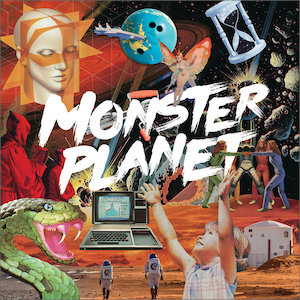

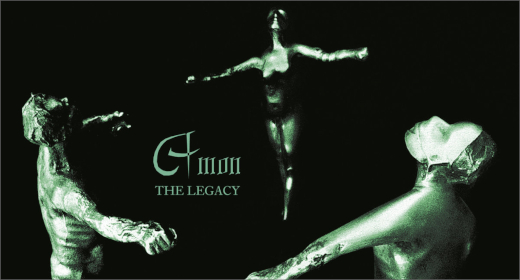
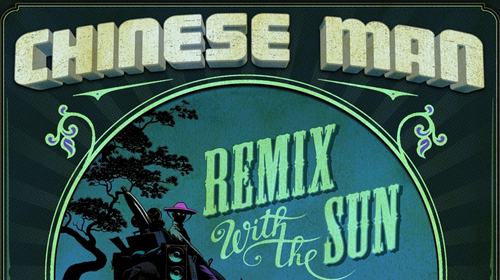
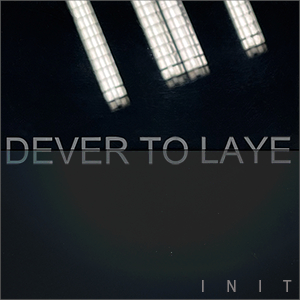

![Extrawelt :: AE-13 (Adepta Editions) — [concise]](https://igloomag.com/wp/wp-content/uploads/2025/04/extrawelt-ae-13_v_feat-75x75.jpg)
![Beyond the Black Hole :: Protonic Flux EP (Nebleena) — [concise]](https://igloomag.com/wp/wp-content/uploads/2025/04/beyond-the-black-hole-protonic-flux_feat-75x75.jpg)
![H. Ruine, Mikhail Kireev :: Imagined / Awakenings (Mestnost) — [concise]](https://igloomag.com/wp/wp-content/uploads/2025/04/h-ruine-mikhail-kireev-imagined-awakenings_feat2-75x75.jpg)


![Squaric :: 808 [Remixes] (Diffuse Reality) — [concise]](https://igloomag.com/wp/wp-content/uploads/2025/04/squaric-808-remixes_feat-75x75.jpg)


